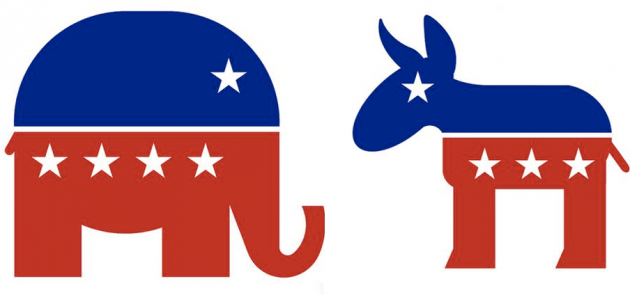Need for political conversations, embracing difference in opinion
February 21, 2017
Last night, I overheard a very interesting conversation. It was between two of my friends: one, a staunch conservative and the other, a dedicated liberal. Though they were on opposite ends of the political spectrum, they have yet to let that difference affect their friendship, which in today’s politically charged climate is an achievement in its own. What made their conversation special was that it was a civil, informatory conversation about politics. Each person took turns discussing his or her views on health care. While one person talked, the other listened intently, occasionally interrupting to ask questions. Both seemed genuinely interested in getting to know the other’s view reasoning. There was no animosity, anger or raised voices. It was friendly with an occasional joke peppering the more serious subjects. Once the conversation had run its course, they agreed to continue on with their own political views but appreciated the opportunity to better understand the reasoning behind the other’s views.
In today’s heated political world, the mention of politics in any social setting has the very real risk of becoming a shouting match. This is heightened by the media, which portrays the idea that, depending on who you are watching and listening to, there is a right and wrong side. Due to the possibility that different political views could be the catalyst of a break in relationships and friendships, people instead choose to stay quiet, keeping their political viewpoints hidden like a dirty habit.
What if more people dusted off their political views and displayed them, but, instead of in the aggressive way expected today, they displayed them the way they would their choice to be a vegetarian or their major. Will everyone have the same major? No. Everyone has their own unique reasons behind the path they chose to follow. Just because their reasons may differ does not mean that they are wrong. It means they have different priorities and views. Most friend groups consist of people from all different majors. There is no animosity between those friends. There is just the mutual understanding that they do not all see eye to eye on some things.
The same should be the way with political beliefs. Yet, a person’s political view has become something that people use to attack others. It is something that, if a friend does not agree with completely, can be used to categorize that friend into “them versus us.” Instead of listening to the reasons behind why people believe what they do, people chose to say definitively “no, you’re wrong.” This claims that their friend’s views are wrong and that they know the right answer. Yet, how could someone know the correct answer when there is no such thing. The issues our political systems are trying to solve are much bigger than a single, simple answer. They are complex and require compromise. And with compromise comes disagreements.
Secondly, by saying that someone’s beliefs are wrong they are immediately putting that person on the defensive. This creates negative, hostile feelings between them that can escalate what was meant to be a conversation between friends into a fight. This also makes the person who has the “wrong” beliefs hesitant to continue the conversation of politics. He or she becomes unwilling to share the reasons behind why he or she believes what he or she does, and instead a divide grows between the two parties.
This divide will only grow if we continue on the path we are on. The only way to bridge this divide to communicate. Not fight. Not dismiss. But to have a mature conversation between friends in all sorts of settings, not just in the classroom. There should be no need for a mediator at these conversations because they should be far from a debate. Their purpose is not to sway friends’ perspectives to match one’s own, but instead to learn about why they believe what they do. They are listening to their reasons. They are not judging. This conversation should take place between friends, family members and classmates. It should not be a taboo conversation. Through conversations like this, we could better teach that differences in opinions is not something that should be squashed, but something to be embraced because this ability to hold different political opinions is what makes the United States so special. It is what makes us American.









